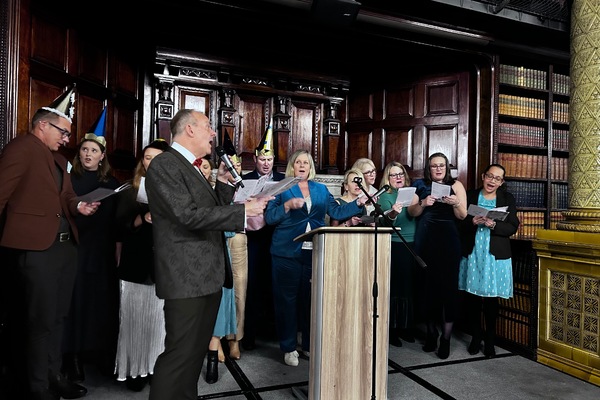'We're always trying to improve our offer to Brits,' says Spain's tourism sec
 James Chapple
James ChappleSpain’s tourism secretary has opened up to TTG on the country’s efforts to ensure it remains the UK’s number one holiday destination, as well as its plans for the 2030 Fifa World Cup – and she had a simple message too for agents concerned about new EU border rules: “Don’t worry.”
Speaking exclusively to TTG, the country’s secretary of state for tourism, Rosana Morillo, said 2023 had been an “extraordinary year” for Spain, one in which the country was able to grow tourism income compared with 2019 even though visitor numbers are yet to fully recover to pre-pandemic levels – a feat she attributed to “the continued trust of the British traveller”.
“Spain is really thankful,” said Morillo. “It’s a classic destination for British tourists, and we’re always trying to improve our offer.”
One way Spain has achieved this is by investing billions, some €3.4 billion between 2021 and 2023, introducing visitors to less heavily touristed areas of the country such as its cooler northern coastline, known for its gastronomy, like Asturias, Galicia and the Basque Country.
Value over volume
Spain’s primary focus, though, is growing tourism spend rather than numbers, although Morillo acknowledged there are many areas of the country that still “need” to grow visitor numbers.
“Tourism is a great source of value to less populated regions – it’s about balance, not going for numbers in destinations that are already mature,” she continued, acknowledging the friction between holidaymakers and locals in some places.
Another area where Spain must pursue balance is between its aim to grow tourism spend and continuing to cater for a broad cross-section of potential tourist arrivals. Morillo recognises this cannot be to the detriment of value- conscious families and those seeking all-inclusive experiences, demand for which has been heightened due to the cost of living squeeze.
Spain was one of several European countries to experience unusually warm summers, which created the conditions for wildfires in Greece, Italy and Portugal. Morillo said Spain was working closely with the EU on strategies to mitigate the impacts of climate change, but rejected the narrative southern Europe was becoming “too hot” for tourism. “We haven’t seen a drop in numbers because of this issue,” she said.
New EU border rules
TTG’s conversation with Morillo came shortly after it was confirmed the Etias visa waiver scheme – the EU equivalent of the US Esta – has been further delayed until 2025; Etias visa waivers will be charged at €7, and will be valid for three years.
The scheme will be dependent too on the introduction of the EU’s entry-exit system – biometric checks at external EU borders, such as with the UK.
While not especially costly, both are set to become additional inconveniences of post-Brexit travel for Brits and their travel agents, who will have to decide whether this is a formality they shoulder for their clients. Morillo, though, said the new arrangements weren’t a major concern for Spain.
“We have to make sure any procedures we put in place are streamlined so they don’t affect the experience for people coming from the UK,” she said. “With any changes like this, the processes will get better with time, but so far – and I’ve seen the current design – I don’t foresee a big issue for British travellers.”
World Cup strategy
While Spain expects its investment in diversifying its tourism offering to start paying significant dividends in 2025/26, it has already embarked on a longer-term plan through 2030 when it will jointly host the Fifa World Cup with Morocco and Portugal.
Morillo said this would span the public and private sectors, focusing on sustainability, mobility, energy and talent management.
“If we don’t work together towards the same goal, we won’t make it for this World Cup or the next,” said Morillo. “It will be a great time to host it, and I look forward to seeing the results of this strategy.”
Sign up for weekday travel news and analysis straight to your inbox

James Chapple
Supplier Directory
Find contacts for 260+ travel suppliers. Type name, company or destination.















